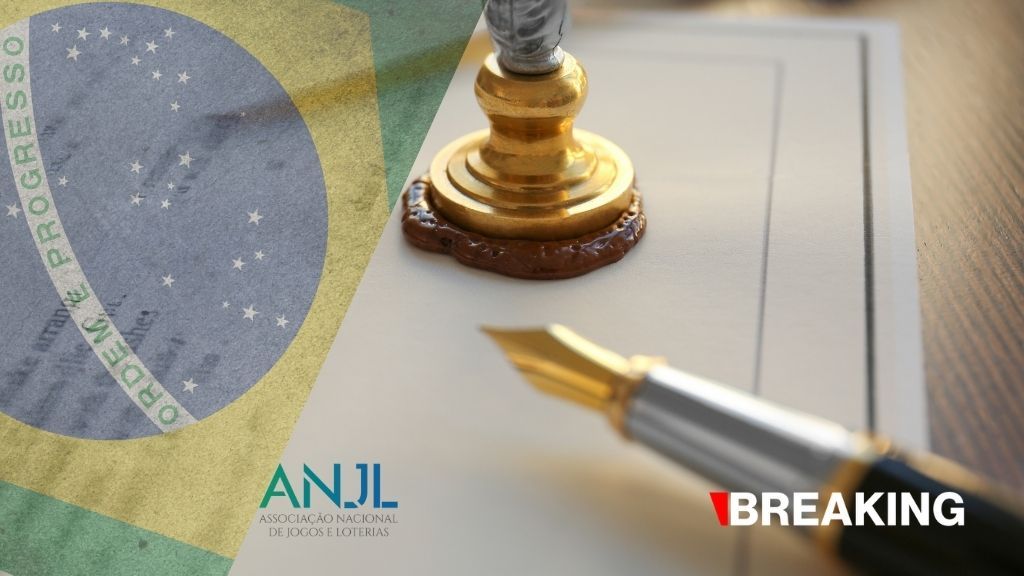
ANJL has announced the launch of the "ANJL Compliance Certification," which will be used to identify gambling platforms committed to regulatory compliance. This certification will be available to gambling companies applying for federal licenses through the Treasury Department's bonus and gambling secretariat (SPA). Another version of the certification will be introduced next year to distinguish between fully licensed operators, operators applying for licenses, and illegal operators.
The gambling industry in Brazil is at a critical juncture, facing regulatory hurdles, tax issues, and the ongoing struggle against illegal operators. SiGMA News interviewed Plínio Lemos Jorge, the chairman of the National Association of Gambling and Lotteries (ANJL), at a press conference yesterday. He emphasized the immediate need for reform and highlighted the importance of creating a safe, competitive market. At the conference, Jorge discussed the crucial roles of data transparency, taxation, and advertising in distinguishing between legal and illegal operators.
Although the new Brazilian gambling platform bet.br is expected to launch on January 1, 2025, the certification will provide bettors with a reliable way to identify legal operators. This is an important step in building market trust, while unregulated competition remains a significant issue.
Inconsistencies in Government Data
Plínio Lemos Jorge pointed out several issues in the data released by the Central Bank of Brazil, particularly regarding the use of social welfare funds for gambling. According to a recent study, 80% of bets come from beneficiaries of the "family allowance," which Jorge finds dubious. He noted that 90% of the beneficiaries of the "family allowance" are women, yet only 5% of the tracked bets involve women. This discrepancy suggests the possible use of accounts by minors, emphasizing the need for enhanced supervision and transparency. Jorge stated that ANJL needs full access to these data for deeper and more accurate analysis.
Taxation and the Threat of Illegal Operators
One of the main concerns in the gambling industry is Brazil's high tax burden, which Jorge believes could inadvertently benefit illegal operators. He warned that if the effective tax rate exceeds 50%, licensed platforms may struggle to compete with unregulated, untaxed, and socially irresponsible illegal sites. Without a balanced tax system, players might turn to these illegal platforms, thereby weakening the legal market.
The difficulty of combating illegal operators was also discussed. Many illegal sites are based in countries like Russia and China, making them hard to block. They frequently change their URLs and continue to operate under local restrictions. Jorge suggested that the government should adopt continuous monitoring, especially of the payment systems used by these sites, to reduce their attractiveness and accessibility.
The Role of Advertising in Market Regulation
Jorge emphasized the importance of advertising as a tool to differentiate regulated platforms from illegal ones. As the Brazilian gambling market matures, advertising becomes crucial in educating players about legal options. Jorge mentioned the case of Portugal as a cautionary tale: strict advertising restrictions there allowed the illegal market to capture 50% of all bets. The lesson is clear—while regulation is necessary, it should not stifle communication between operators and consumers, as this only pushes players towards the underground market.
ANJL Signs Agreement to Address Gambling Addiction
In another significant development, Jorge announced that ANJL has signed a technical cooperation agreement with Somente S.A., primarily to address compulsive behavior or gambling addiction among Brazilian players. The gambling addiction research and prevention program will provide offline and online psychological support to players with gambling addiction. Initially, the program will focus on communities such as Paraisópolis, Heliópolis, and Nova Jaguaré, offering 1,000 offline consultations and 20,000 nationwide online consultations.
This initiative also serves a dual purpose: it will collect key data on gambling addiction in Brazil, providing a basis for analyzing risk factors and developing targeted prevention and treatment strategies. This comprehensive approach positions ANJL as a leader in responsible gambling measures, addressing the increasingly severe social issues as the gambling market expands.
Regulatory Bodies Call for Cooperation with Legal Operators
Jorge finally emphasized the importance of cooperation between legal operators and government regulatory bodies. In countries with effective regulation, operators are motivated to report illegal activities, thereby helping to protect the entire industry. He believes that Brazil must follow suit, creating a cooperative environment that benefits both the government and responsible operators.
In conclusion, ANJL's initiatives, from its mental health program to the launch of the ANJL Compliance Certification, mark key steps in ensuring a safe, regulated, and competitive Brazilian gambling market. However, high taxation, illegal operators, and challenges in regulatory enforcement remain pressing issues, urgently requiring coordinated action between the government and industry stakeholders.










